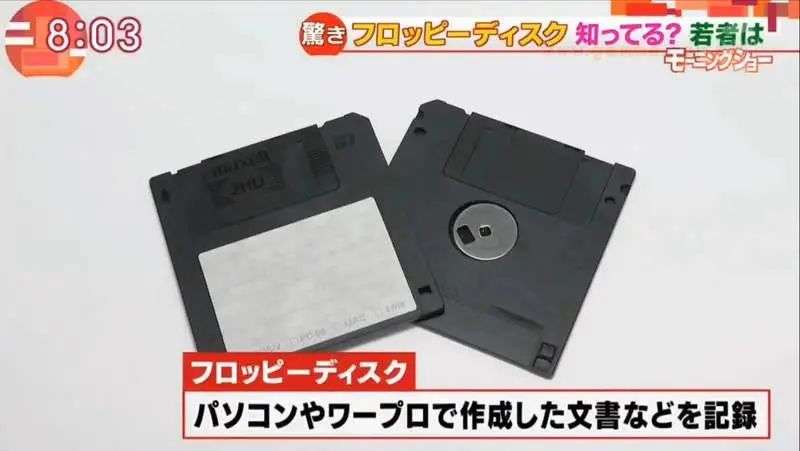Once important, it is now a symbol.
Editor’s note: href=”https://mp.weixin.qq.com/s/dg1KeRTO_RIO6TzRZVuH3Q”> “APPSO” article from the micro-channel public number , Author: Li Chen .
Just a few days ago, “3.5-inch floppy disk” became a hot topic among our neighbors, Japanese netizens. A 3.5-inch floppy disk, even for many people in their thirties, is already a product in the deepest memory.
What happened? In fact, Japanese banks, such as Hiroshima Bank and Yamagata Bank, have announced that they will abolish support for 3.5-inch floppy disks next year. Just such a thing, it sounds absurd.
In Japan, 3.5-inch floppy disks have not been completely eliminated
So when Japanese netizens saw the news, they immediately fry the pot, and they all said that they seemed to have seen the funniest joke in 2020. In 2020, the bank is still using 3.5-inch floppy disks, bringing a The sense of confusion over time and space.
For most young Japanese people, floppy disks are something beyond memory and cognition. According to a street survey, only two of the thirty young people interviewed know about 3.5-inch floppy disks.
However, relevant practitioners soon came in and said that it was not that these banks were too conservative and refused to give up 3.5-inch floppy disks, but to accommodate the habits of customers. Many small and medium-sized companies in Japan have not updated their equipment and have used 3.5-inch floppy disks for transactions with banks for many years. The customers of local banks are also relatively fixed, causing the replacement of storage media to be delayed.
Is this really the case? The Bank of Hiroshima is one of the banks that announced the abolition of 3.5-inch floppy disks next year. Facing an interview with TV Asahi, the Bank of Hiroshima made it clear that it was to meet customer needs.
Picture from: Youminxingkong
Among their cooperative clients, 450 public or private companies are still using 3.5-inch floppy disks to transmit salary data.
And theseAmong customers, in addition to not wanting to pay for the update of the device, there are also various reasons. For example, some companies think that it is safer to send floppy disks by mail, while problems are prone to occur when using network transmission (if you insist on mailing) , Anyway, also change to a U disk).
This kind of joke can also be said to be a serious “nostalgia complex” in Japan. Perhaps it is only in Japan that we can see the latest products working together decades ago.
In September last year, the Nikkei News Agency reported that not only did small and medium-sized enterprises in Japan upgrade their equipment very slowly, but even large companies in the automotive field often looked for computer repair shops to prevent old computers from being eliminated. And there are even old computers that use 5.25-inch floppy disks.
Another data shows that according to the Japan Machinery Industry Federation, the number of production equipment imported from Japan and still in use for more than 30 years has reached 19.1%. This figure is quite astonishing. It is conceivable that the Japanese How unwilling to update.
Stubborn and conservative Japan may continue to use floppy disks in some places.
Floppy disks have dominated America’s nuclear weapons for fifty years
The area where floppy disks are still glowing is not limited to civilian use. The most lethal weapon we humans can make-nuclear weapons. For a long period of time, many of them are controlled launches through floppy disks.
To be precise, in the past fifty years, since the 1970s, the United States, as a nuclear power, has had its military’s nuclear weapons system controlled by floppy disks.
In 2016, a report by the US Government Accountability Office pointed out that the US nuclear weapons arsenal was controlled by an old computer equipped with an 8-inch floppy disk. In 2014, CBS also reported on the daily life of nuclear bomb launch commanders, which also introduced these old antique computers.
The U.S. military responded at the time that the biggest reason they did this was safety, hoping to operate these devices with the highest reliability. These antique computers cannot connect to the Internet at all, and their systems are very simple and ancient, and there is almost no possibility of being hacked.
Faced with the unchanged situation for half a century, the U.S. Department of Defense has decided to upgrade its data storage solutions before the end of fiscal year 2017, and will introduce more new equipment, including extended processors and portable terminals

